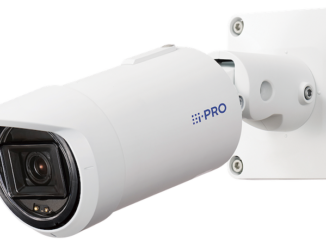
A 27 January letter from Parliament’s Justice and Home Affairs Committee to Home Secretary James Cleverly finds use of live facial recognition technology by police lacking in legal foundation.
The United Kingdom Parliament Justice and Home Affairs Committee investigation into the deployment by police forces of Live Facial Recognition (LFR) Technology—the technology that compares a live camera video feed of faces against a predetermined watchlist of people to find a possible match – has identified several issues.
The Committee writes that the deployment of the technology lacks a clear legal foundation, there are no rigorous standards or systems of regulation in respect of the use of LFR, and there is no consistency in approaches to training in its use by police forces.
The Committee accepted that LFR may be a valuable tool for police forces in apprehending criminals, but stated it is deeply concerned that its use is being expanded without proper scrutiny and accountability.
“To us it seems the fact that the technology is regarded as controversial means that continued public support cannot be taken for granted.”
In order to ensure public trust in the police’s operation of LFR and its support of the use of the technology, the Committee called for:
- A clear foundation in law for the use of LFR technology
- A legislative framework for the regulation of the deployment of LFR technology
- Clear structures and regulation in relation to the use of LFR as well as independent scrutiny
- Future-proofing of regulations to meet for rapid advancement in technology
- Consistency in training and in the use of LFR across England and Wales.
According to the Committee, the police should make it very apparent to the public when and where LFR technology is being deployed, and pre-deployment communication must be standardised through an enforceable national procedure.
“It is essential that the public trusts LFR and how it is used,” said Committee Chair Baroness Hamwee. “It is fundamental that the legal basis is clear. Current regulation is not sufficient. Oversight is inadequate.”
“Technology is developing so fast that regulation must be future-proofed. Police forces may soon be able to link LFR cameras to trawl large populations, such as Greater London, and not just specific localities.”
“We also believe that the Government must lead a wider public debate about the use of LFR technology, as used now and as it develops, to ensure public confidence and support… To us it seems the fact that the technology is regarded as controversial means that continued public support cannot be taken for granted.”
“We are an outlier as a democratic state in the speed at which we are applying this technology,” she continued. “We question why there is such disparity between the approach in England and Wales and other democratic states in the regulation of LFR.”
In a report published in March 2022 titled Technology rules? The advent of new technologies in the justice system, the Committee characterised the UK as “a new Wild West, in which new technologies are developing at a pace that public awareness, government and legislation have not kept up with.”








